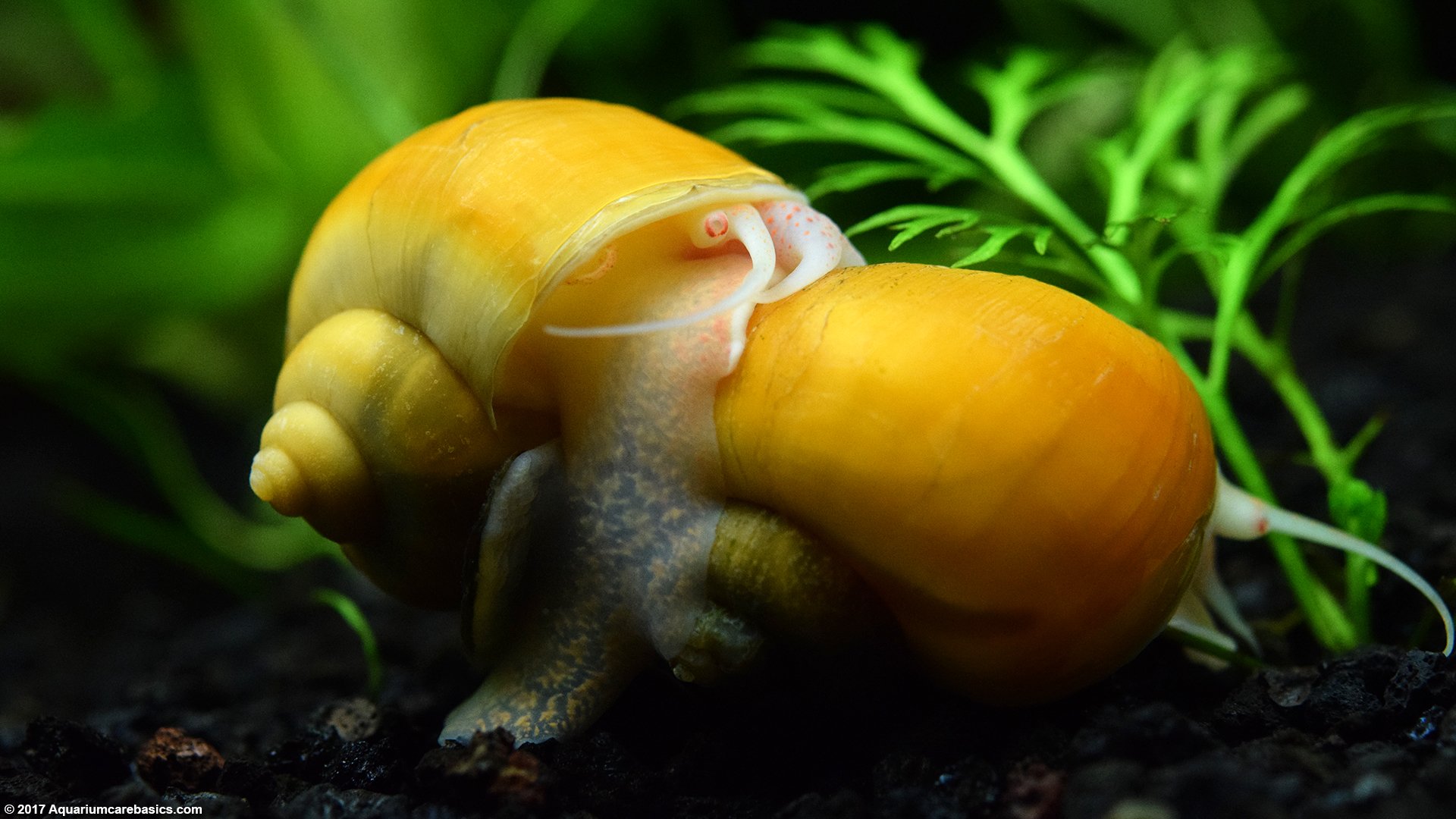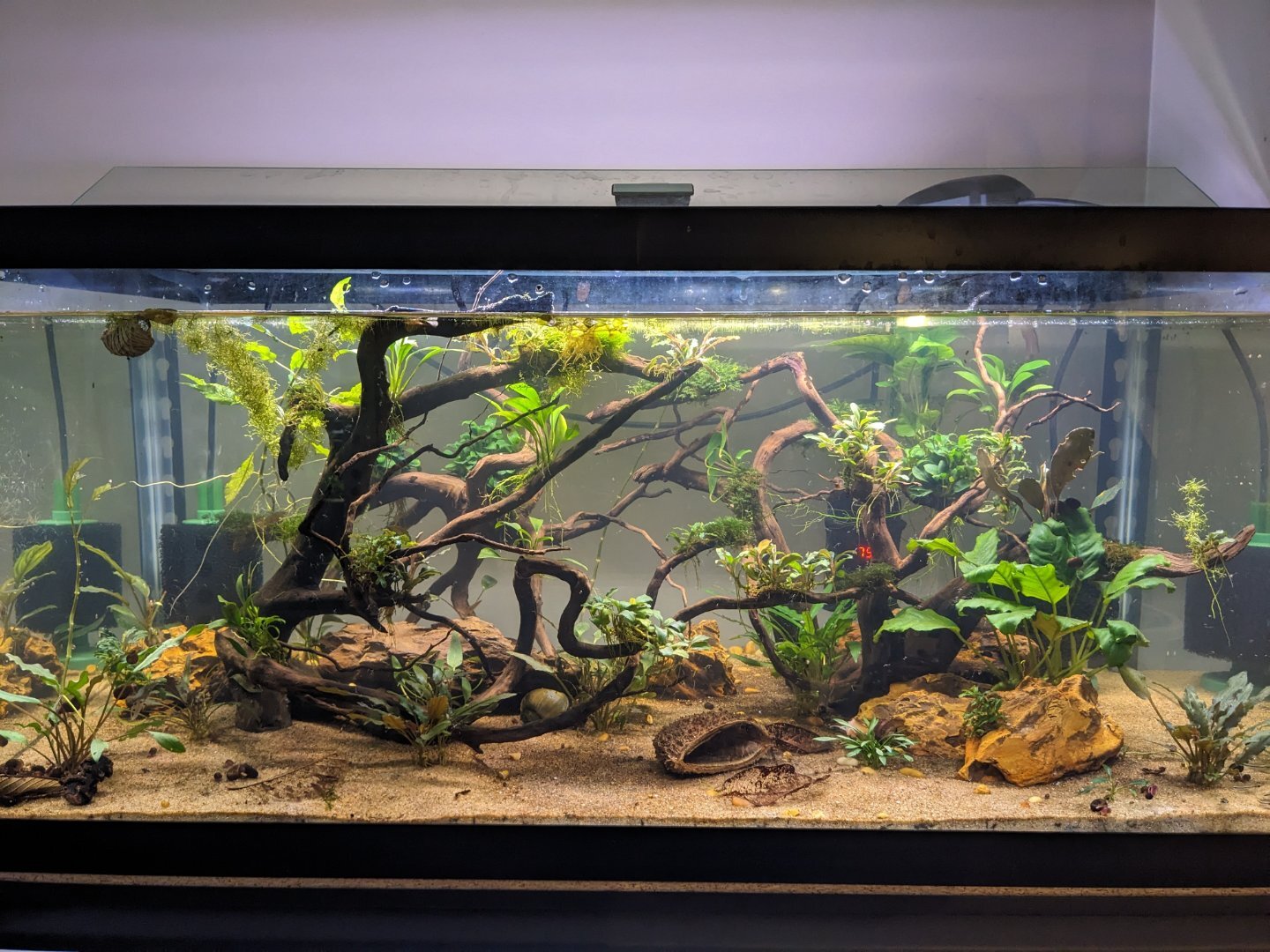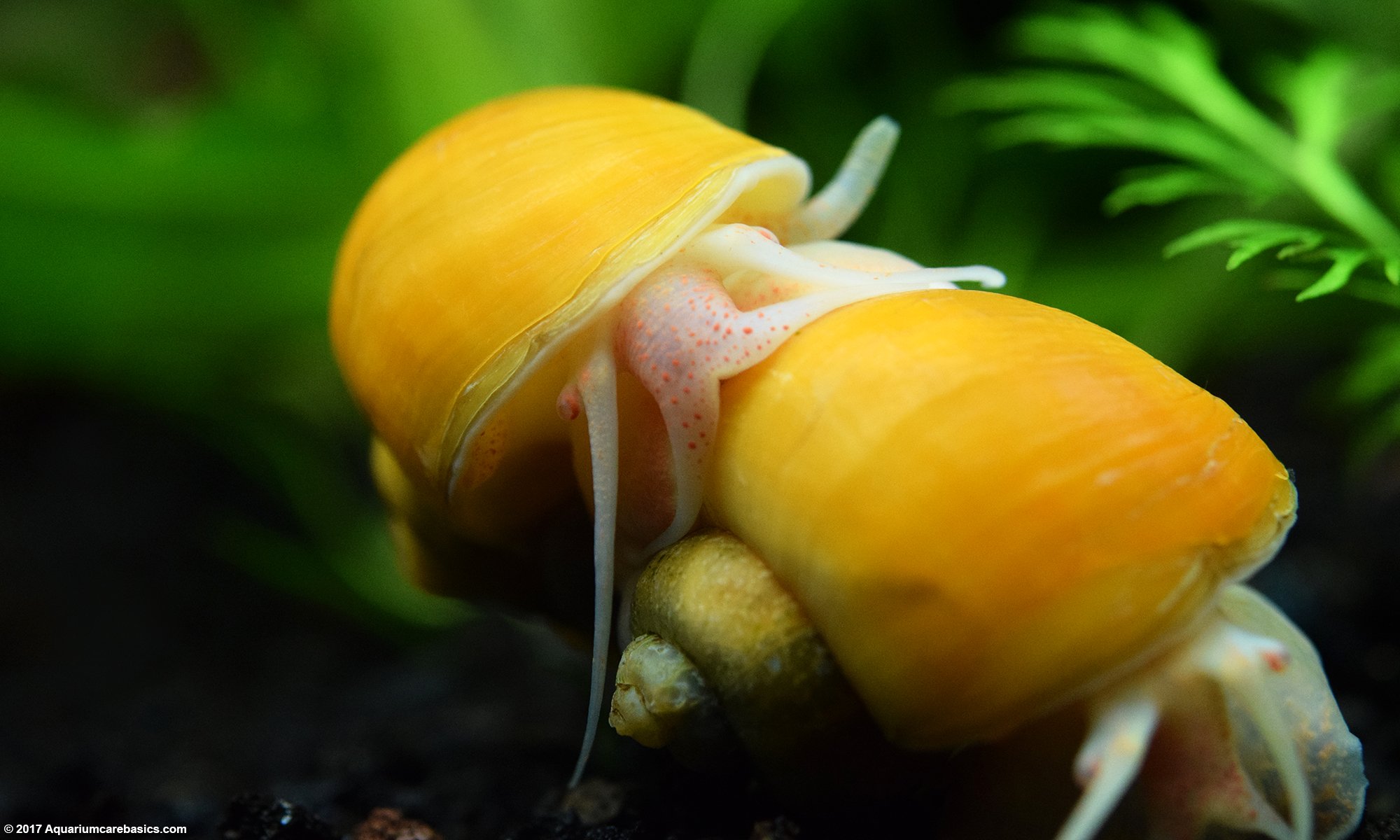Understanding Golden Mystery Snails

Physical Characteristics and Behavior
Golden Mystery Snails, scientifically known as Pomacea bridgesii, are known for their vibrant golden shells and peaceful nature. They typically grow to about 2 inches in diameter, making them a manageable size for most aquariums. These snails are primarily active during the day, often seen grazing on algae or exploring their surroundings.
Natural Habitat and Origin
Originating from South America, Golden Mystery Snails are accustomed to warm, slow-moving waters. In the wild, they inhabit rivers, ponds, and swamps, where they contribute to the ecosystem by feeding on detritus and algae.
Setting Up the Ideal Aquarium for Golden Mystery Snails

Tank Size and Water Conditions
When setting up a habitat for Golden Mystery Snails, it’s essential to consider the size of the tank and the water conditions. A tank of at least 10 gallons is recommended to provide ample space for the snails to move around. The water temperature should be maintained between 68-82°F, with a pH level of 7.0-8.0 to mimic their natural environment.
Filtration and Aeration
Good filtration and aeration are crucial for the health of Golden Mystery Snails. A reliable filter will help keep the water clean, while proper aeration ensures that there is enough oxygen for the snails. Regular water changes are also necessary to maintain optimal water quality.
Substrate and Decorations
A soft substrate, such as sand or fine gravel, is ideal for Golden Mystery Snails. Avoid sharp substrates that could damage their delicate shells. Adding decorations like rocks, driftwood, and live plants can provide hiding spots and surfaces for the snails to graze on.
Feeding and Nutrition
Diet of Golden Mystery Snails
Golden Mystery Snails are herbivores, primarily feeding on algae, plant matter, and detritus. In an aquarium setting, they can be fed a variety of foods, including algae wafers, blanched vegetables (such as zucchini and spinach), and specialized snail food available in pet stores.
Feeding Schedule and Quantity
It’s important not to overfeed your Golden Mystery Snails. Providing a balanced diet once a day is sufficient. Remove any uneaten food after 24 hours to prevent water quality issues.
Breeding Golden Mystery Snails

Identifying Males and Females
Identifying the gender of Golden Mystery Snails can be challenging but is necessary for breeding. Males have a slightly concave shell opening, while females have a more rounded opening. Observing their behavior can also provide clues, as males tend to be more active and often pursue females.
Breeding Conditions
To encourage breeding, maintain stable water conditions and provide a healthy diet. Female snails lay eggs above the waterline, usually on the tank lid or walls. The eggs will hatch in about two to four weeks, depending on the temperature and humidity.
Caring for Eggs and Juveniles
Once the eggs hatch, the juvenile snails will drop into the water. They are self-sufficient from birth and will start grazing on algae and detritus. Ensure the tank is clean and free of predators that might harm the young snails.
Common Health Issues and Solutions
Shell Health and Maintenance
Shell health is a primary concern for Golden Mystery Snails. Ensure that the water contains sufficient calcium to promote healthy shell growth. You can supplement their diet with calcium-rich foods or add a cuttlebone to the tank.
Identifying and Treating Diseases
Golden Mystery Snails are generally hardy, but they can be susceptible to certain diseases. Common issues include shell rot, parasites, and fungal infections. Quarantine any new snails before introducing them to your tank and monitor your snails for signs of illness, such as discoloration or unusual behavior.
Preventive Measures
Maintaining good water quality, providing a balanced diet, and avoiding overcrowding are key preventive measures. Regularly check the tank for uneaten food and debris that could deteriorate water quality.
Integrating Golden Mystery Snails with Other Tank Inhabitants
Compatibility with Fish and Other Aquatic Life
Golden Mystery Snails are peaceful and can coexist with many types of fish and other aquatic creatures. However, avoid housing them with aggressive fish that might nip at their antennae or damage their shells.
Creating a Balanced Ecosystem
A well-balanced tank with a variety of inhabitants can create a thriving ecosystem. Golden Mystery Snails contribute by cleaning algae and consuming detritus, helping to keep the tank clean and healthy.
Conclusion
Golden Mystery Snails are a delightful and beneficial addition to any aquarium. By understanding their needs and providing proper care, you can enjoy the beauty and functionality these snails bring to your aquatic environment. Whether you are a beginner or an experienced aquarist, Golden Mystery Snails can enhance your aquarium experience with their charming presence and useful habits.

